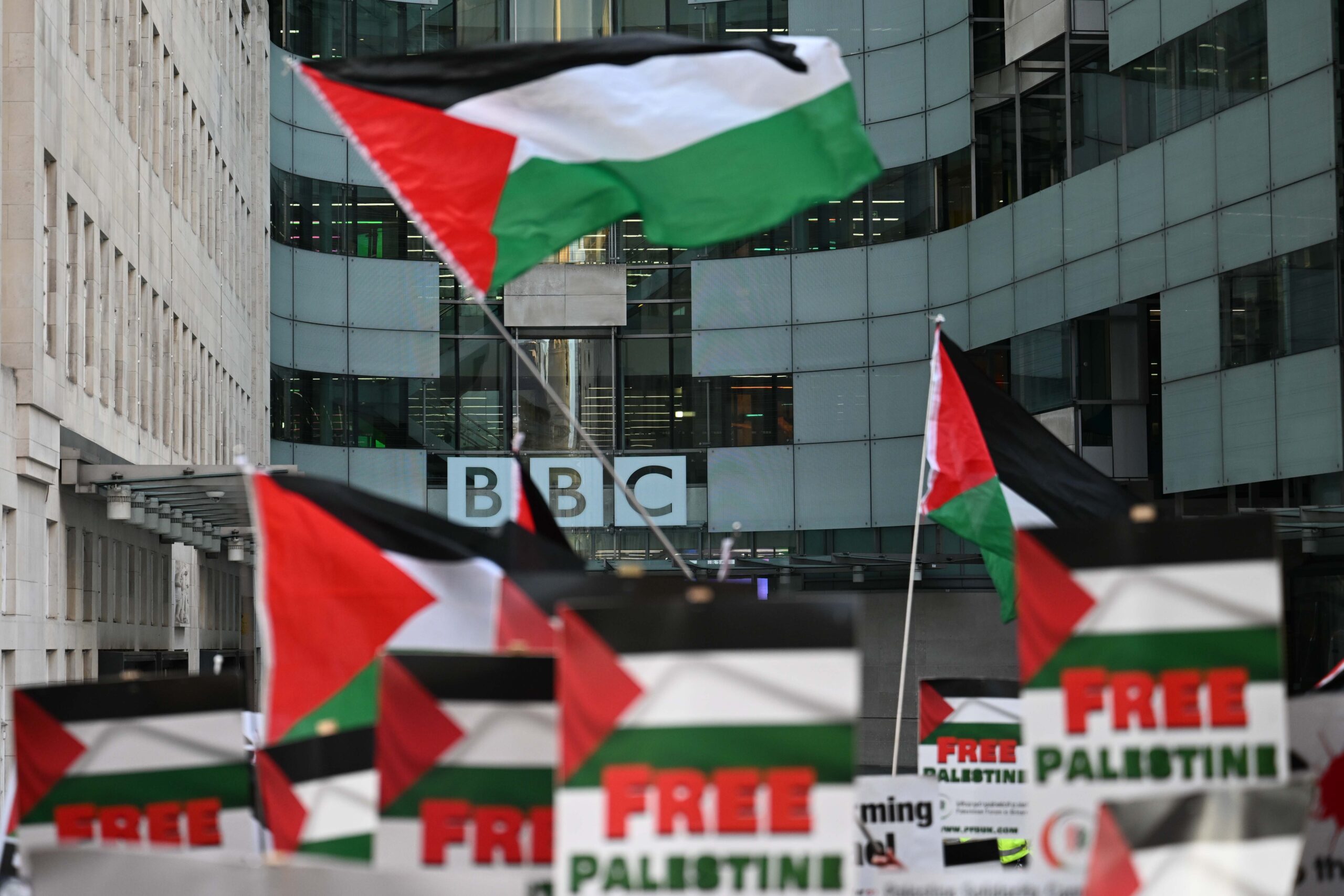
Abu Yusra Choudhury
A comprehensive study examining the BBC’s coverage of Israel’s war on Gaza has found systematic patterns of bias that prioritise Israeli perspectives whilst dehumanising Palestinian suffering, according to new research published by the Centre for Media Monitoring (CfMM).
The 184-page report, analysing over 35,000 pieces of BBC content between October 2023 and October 2024, reveals what researchers describe as a fundamental failure to provide impartial coverage of the conflict that has claimed over 50,000 Palestinian and 1,200 Israeli lives.
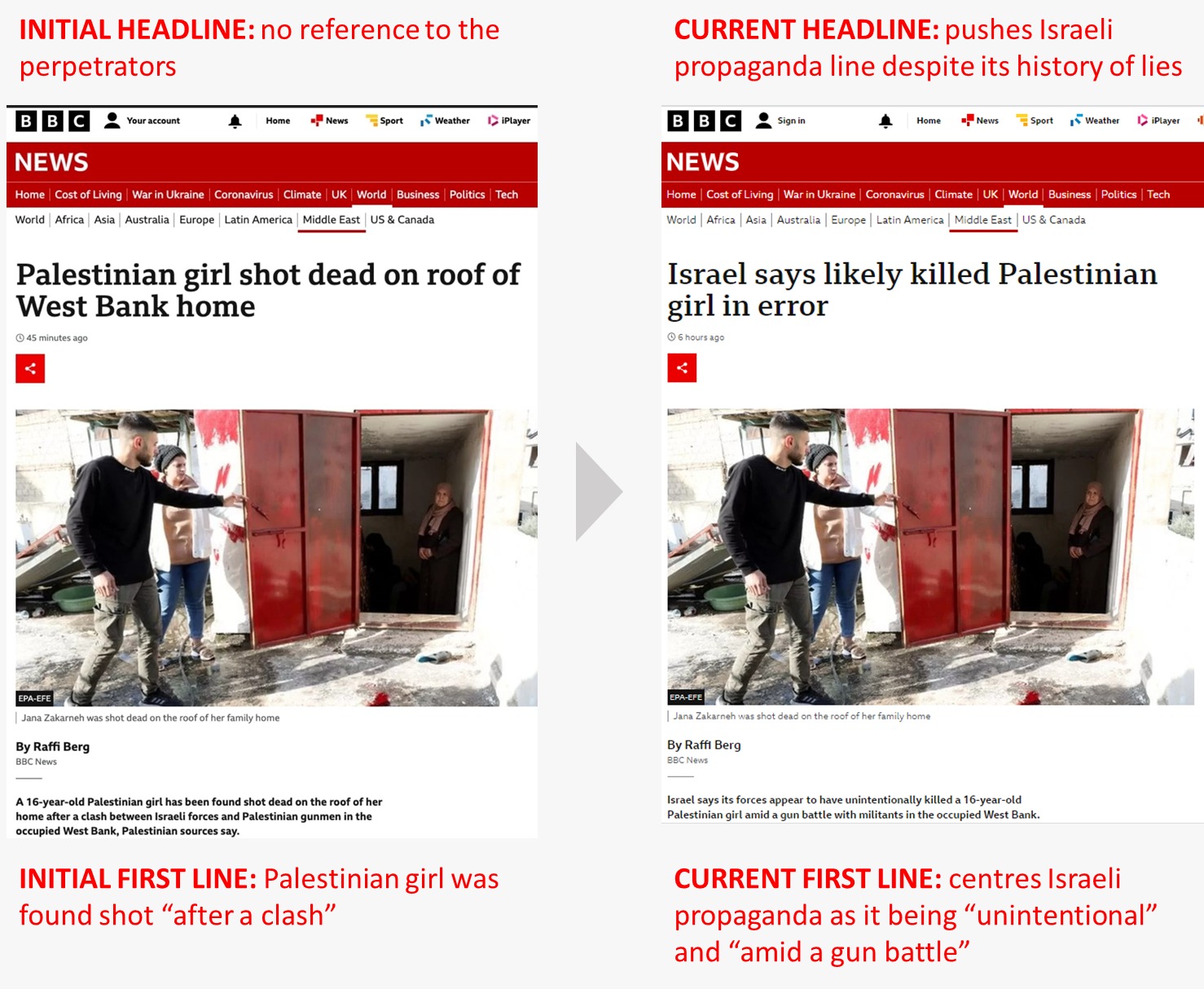
The study’s most striking findings centre on the dramatically unequal treatment of casualties. Despite Palestinians suffering 34 times more deaths than Israelis, the BBC gave Israeli deaths 33 times more coverage per fatality across articles and 19 times more across television and radio broadcasts.
The research found that whilst Palestinian deaths totalled 42,010 during the analysis period compared to 1,246 Israeli deaths, the BBC ran an almost equal number of humanising articles about specific victims from both sides — 279 for Palestinians versus 201 for Israelis.
“The evidence clearly suggests that within the BBC’s editorial framework, Palestinian lives simply do not matter equally,” the report states.
Analysis of the BBC’s linguistic choices revealed what researchers describe as a “hierarchy of language” favouring Israeli victims. The word “massacre” was applied almost 18 times more frequently to Israeli victims than Palestinians, appearing in headlines exclusively for attacks on Israelis despite numerous mass casualty events affecting Palestinians.
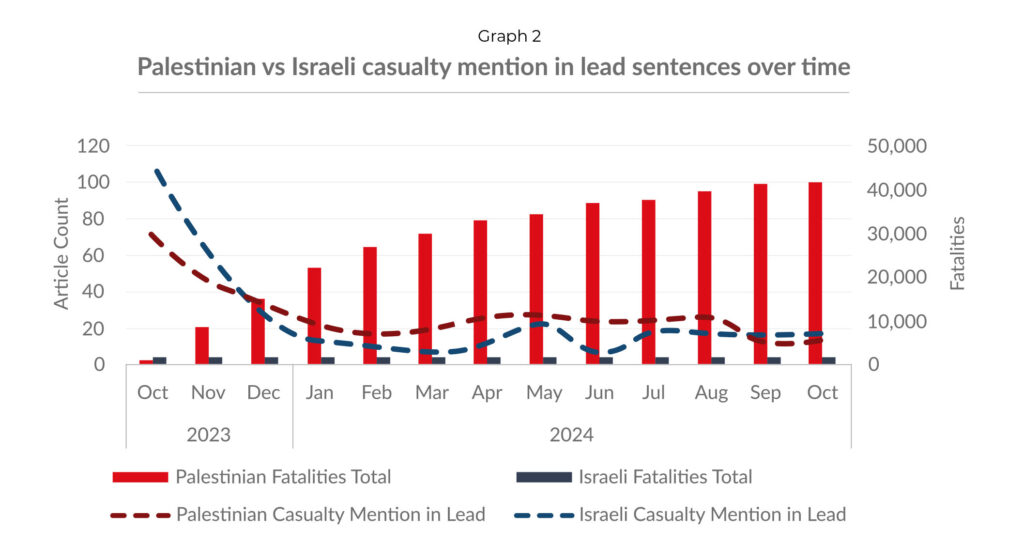
Emotive terms such as “atrocities,” “slaughter,” and “barbaric” were used almost four times more often when describing Israeli victims. On television and radio, 70% of all emotive language used by BBC correspondents and presenters referred to Israeli victims.
Meanwhile, words like “butchered” and “butchering” were used exclusively for Israeli victims, whilst Palestinians were more often described with passive language as having simply “died” rather than being “killed” or “murdered.”
The report identifies a systematic erasure of historical context, with only 0.5% of BBC articles referencing Israel’s occupation and violence against Palestinians in the months, years, and decades before 7 October 2023 — despite such context appearing in at least 40% of coverage.
Terms such as “occupation” appeared just 14 times in articles providing context to 7 October, “blockade” three times, and “settlements” only once, despite these being recognised as fundamental to understanding the conflict’s roots.
Perhaps most concerning, researchers documented over 100 instances where BBC presenters actively shut down interviewees attempting to discuss genocide allegations against Israel, despite mounting evidence from international bodies including Amnesty International and proceedings at the International Court of Justice.
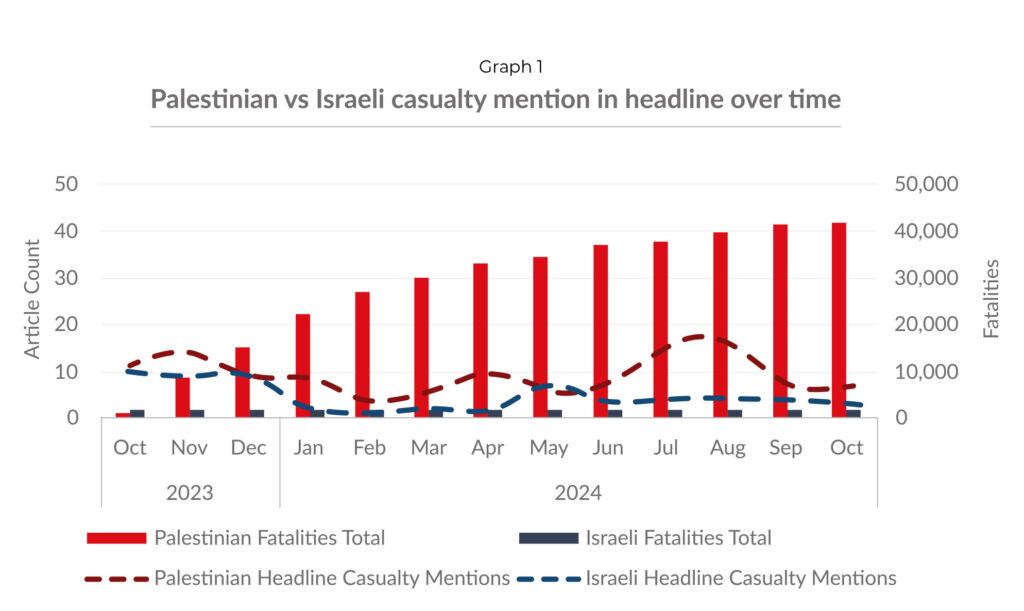
The report found that BBC articles made zero mention of Israeli leaders’ genocidal rhetoric, including Prime Minister Netanyahu’s biblical Amalek reference cited in war crimes proceedings, or Defence Minister Gallant’s description of Palestinians as “human animals.”
The study revealed significant disparities in how the BBC treated different voices. Palestinian representatives were interviewed far less frequently than Israelis (1,085 versus 2,350), and were pressed to condemn Hamas attacks in 38 separate instances whilst Israeli officials faced no similar pressure to condemn their government’s actions.
BBC presenters shared Israeli perspectives 11 times more frequently than Palestinian viewpoints, even when interviewing neutral third parties such as humanitarian organisations.
When compared to the BBC’s coverage of Ukraine, researchers found striking inconsistencies. The corporation discussed war crimes in Ukraine almost three times as often as in Gaza, mentioned Russia as a war crimes perpetrator 2.7 times more than Israel, and published twice as many sympathetic articles about Ukrainian victims compared to Palestinians.
The report was launched at the House of Commons on June 17, where BBC representative Richard Burgess largely defended the corporation whilst dismissing the numerical findings. However, he indicated the BBC would “read the conclusions carefully.”
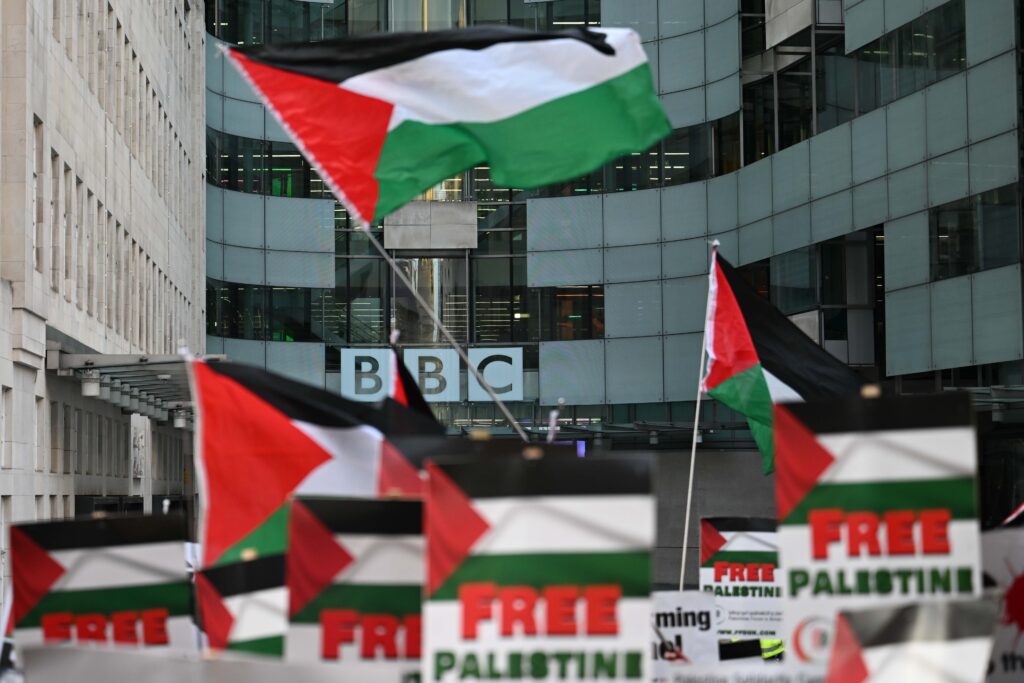
The findings come as the BBC faces internal pressure from over 100 journalists who complained about the “erosion of editorial standards” and failure to “hold Israel to account.”
The report’s conclusions appear particularly poignant given Israel’s ongoing military actions against Iran and continued patterns in BBC coverage.